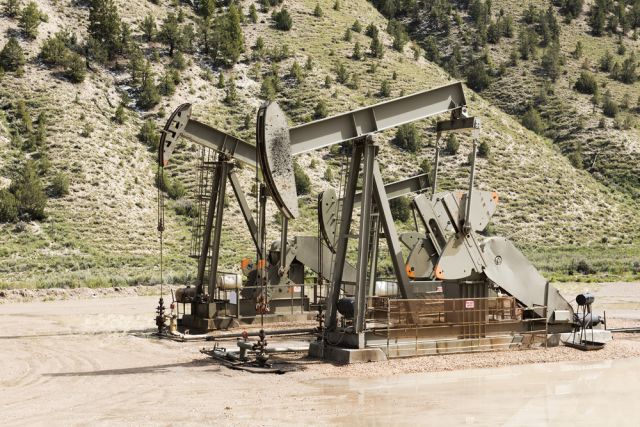
The owners of a Utah tar sands mine project agreed to combine with a blank-check sponsor to go public. (Source: Shutterstock.com)
The owners behind a troubled Utah tar sands mine project agreed to a go-public deal with blank-check company Integrated Rail and Resources Acquisition Corp. (IRRX).
IRRX entered into a business combination agreement with Tar Sands Holdings II LLC (TSHII), whereby the two companies will merge and list the combined firm’s shares on the NASDAQ Stock Exchange.
Tar Sands Holdings II controls real estate and natural resource development rights in Utah’s Uinta Basin, an oily basin receiving greater attention by several public U.S. producers. Tar Sands Holdings II has maintained but not operated these assets.
The company was established by Utah-based Endeavor Capital Group in 2013, the year Tar Sands Holdings II acquired the mining project from bankrupt developers “who had struggled for two decades” with the project, The Salt Lake Tribune reported.
“We are excited to work with IRRX to complete this transaction and see the long-anticipated restart of business operations related to our asset base,” said TSHII owner Joe Sorenson in an Aug. 12 announcement.
IRRX was formed in 2021 by management of infrastructure companies Rio Grande Pacific Corp. and DHIP Group, according to regulatory filings.
DHIP Group is the developer of the $2.4 billion Uinta Basin Railway, a project being pursued through a public-private partnership with a coalition of eastern Utah officials. Earlier this year, the U.S. Supreme Court agreed to consider reviving an approval for the Uinta railroad project.
RELATED
Supreme Court’s Uinta Basin Rail Case Raises Stakes for LNG, Pipelines
“Today’s announcement of the Business Combination, refinery transload terminal development and operation, and commercialization marks a huge step forward towards the restart and optimization of the refinery,” said IRRX Chairman and CEO Mark Michel in an Aug. 12 announcement.
Blank-check companies, sometimes called special purpose acquisition companies, or SPACs, are seen as an alternative means of going public than pursuing a traditional IPO.
SPAC fundraising activity and de-SPAC business combinations reached record levels when traditional IPO activity stalled during the COVID-19 pandemic.
However, SPAC activity has fallen off a cliff in the past few years and the stock performance of many SPAC targets has disappointed, experts say.
RELATED
SPAC Attack: Clean Energy, Oil & Gas Cashed In on Pandemic-Era Frenzy
Recommended Reading
Woodside, Chevron Agree to Swap Oil, LNG Assets
2024-12-19 - Woodside and Chevron have entered an agreement that shifts interests in oil, LNG and carbon capture projects with Chevron also paying Woodside $400 million.
EY: Three Themes That Will Drive Transformational M&A in 2025
2024-12-19 - Prices, consolidation and financial firepower will push deals forward, says EY.
Power Co. Proposes NatGas Plants Near Texas Haynesville Shale
2024-12-18 - An American Electric Power (AEP) subsidiary plans to develop two natural gas-fired generation projects near the prolific Texas Haynesville shale play.
Analysts: DOE’s LNG Study Will Result in Few Policy Changes
2024-12-18 - However, the Department of Energy’s most recent report will likely be used in lawsuits against ongoing and future LNG export facilities.
Reliance Exercises Four-Well Option on Transocean Rig
2024-12-18 - Transocean Ltd. says the 270-day program will contribute about $111 million in backlog.
Comments
Add new comment
This conversation is moderated according to Hart Energy community rules. Please read the rules before joining the discussion. If you’re experiencing any technical problems, please contact our customer care team.





